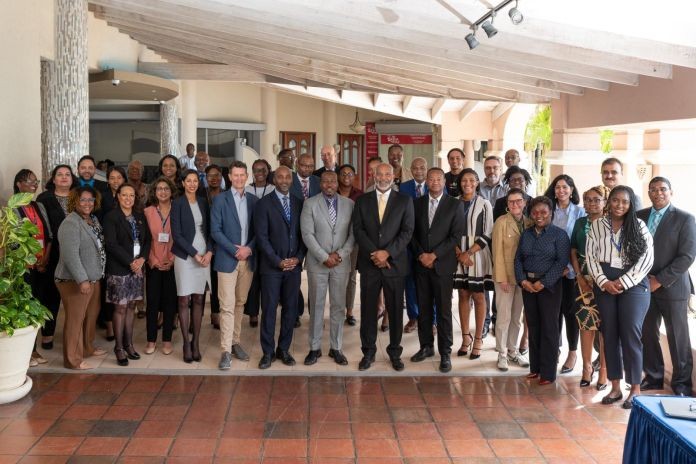BRIDGETOWN, Barbados – The Commonwealth Secretariat’s Connectivity Agenda team together with the Caribbean Telecommunications Union (CTU) hosted a Workshop on ‘Effective Legal Frameworks for Building the Digital Economy’ in Bridgetown, Barbados.
Through legal reforms in the Caribbean and building the capacity of key policymakers and government officials involved in information and communications technology (ICT), digital trade and economic issues, the Commonwealth Secretariat aims to support countries to leverage the opportunities that digital trade offers.
Speaking at the workshop, Dale Marshall Q.C. MP, attorney-general and minister of legal affairs Barbados highlighted that countries have moved past e-commerce and evolved towards the digital economy holistically, as digital trade is of growing importance. He indicated that in the development of legal frameworks to support the digital economy, it is important to look at international best practices but most importantly focus should be placed on what works best for each country as we move ahead.
Legal reform can transform trade
The 2022 Commonwealth study, Quantitative Analysis of the Move to Paperless Trade sets out a clear case for how legal reform can transform trade. If governments remove the legal requirement for commercial trade documents to be handled on paper and align legal systems to the UNCITRAL Model Law on Electronic Transferable Records (MLETR) to enable digital documents to cross borders, it will unlock a $1.2 trillion trade opportunity across Commonwealth nations. If coupled with the digitalisation of customs, that figure rises to $2 trillion, twice the 2030 intra-Commonwealth trade target.
Such a move would update laws dating back to the 1800s, strip out all the unnecessary inefficiency of paper-based systems, enable technology solutions to scale up across borders, reduce the cost of trade transactions by 80 percent, address 50 percent of the trade finance gap and reduce cross-border compliance from 25 days to one day. This would make trade cheaper, faster, simpler and more inclusive. It would also help to reduce fraud and generate the visibility and transparency we need across global supply chains to drive more sustainable trade. It’s a viable solution for governments with limited fiscal capacity post-Covid.
Commonwealth connectivity agenda
Given its expansive scope and championing of the Commonwealth Connectivity Agenda, the Commonwealth is ideally poised to provide support in digital trade facilitation as part of an integrated trade network, and the fact that most members follow a common framework of laws allows for greater alignment and harmonisation. Belize, Singapore and Papua New Guinea have already achieved this.
The UK will be the first G7 member to follow suit in May or June 2023, with the new Electronic Trade Documents Bill, and Australia, Canada and New Zealand have all committed to reforming laws through existing trade and G7 agreements.





